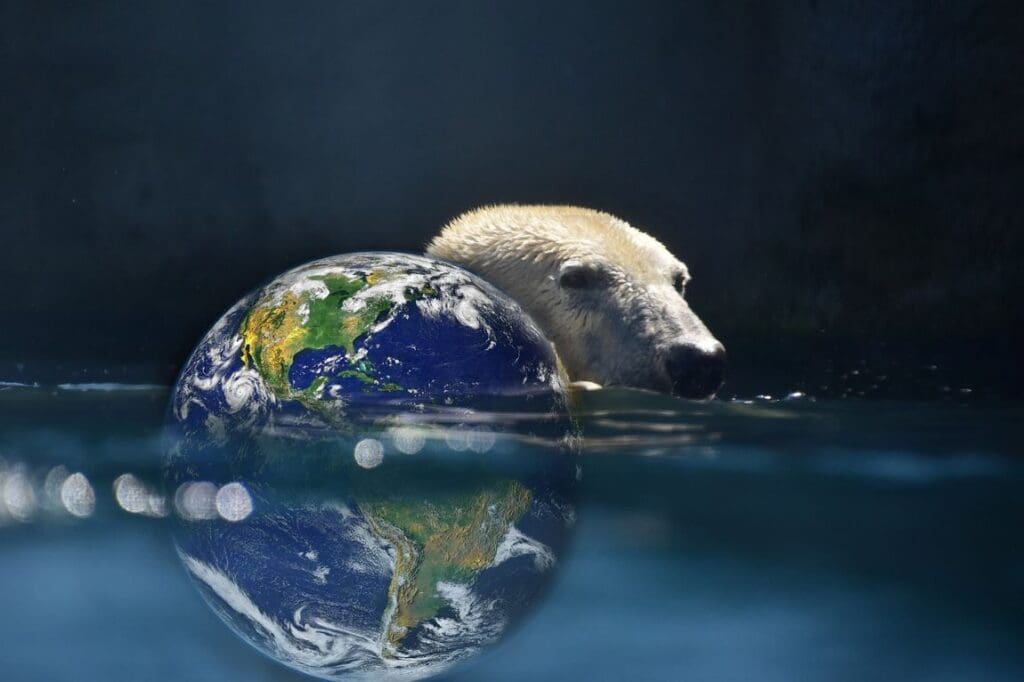Summary:
As environmental changes driven by climate change continue to disrupt lives around the world, researchers are turning to the concept of solastalgia to better understand the psychological toll. A new review published in BMJ Mental Health suggests that solastalgia – distress caused by changes to one’s home or surrounding environment – may play a significant role in the onset of mental health problems such as depression, anxiety, and post-traumatic stress disorder (PTSD).
Coined in 2003, the term blends “solace” and “nostalgia” to describe a sense of loss and powerlessness in the face of environmental degradation. In this scoping review, researchers analyzed 19 studies involving more than 5,000 participants across Australia, Germany, Peru, and the United States. The results showed consistent links between solastalgia and a range of mental health symptoms, including somatisation – the experience of physical symptoms rooted in psychological distress.
The findings suggest that solastalgia may be especially relevant in settings affected by ongoing or human-driven environmental damage, rather than one-off natural disasters. While further research is needed to determine causality, the review highlights solastalgia as a potentially valuable framework for assessing climate-related mental health risks and designing preventive interventions.

Solastalgia might help explain effects of climate change on mental health
Solastalgia might help explain the negative effects of climate change on mental health, suggests a review of the available research, published in the open access journal BMJ Mental Health.
Solastalgia is caused by changes to the home or surrounding environment and is associated with depression, anxiety, and post traumatic stress disorder (PTSD), the findings show.
A blend of the words ‘solace’ and ‘nostalgia’, the term solastalgia was first coined in 2003 to refer to the lack of solace and feelings of pain or sickness caused by changes in a person’s immediate or surrounding environment.
Several scales have since been developed and validated to measure solastalgia, but the extent to which it might contribute to the effects of climate change on mental health aren’t known.
To explore this further, the researchers scoured research databases for studies on solastalgia and mental health published between 2003 and 2024. Out of an initial haul of 80, 19 were eligible for inclusion in the review: 5 quantitative studies in the core search; 14 qualitative studies in the extended search.
The studies were carried out in Australia, Germany, Peru and the USA, and involved a total of 5000+ participants.
The study findings of the core search consistently showed positive associations between solastalgia and mental health problems, including depression, anxiety, PTSD and somatisation – physical symptoms caused or worsened by psychological distress.
The extended search backed up these findings, with qualitative studies suggesting that solastalgia is a very useful concept to understand the emotional responses of people affected by environmental change, including pessimism and lowered resilience.
“These findings are in line with the literature on positive links between environmental distress more generally and mental ill health. Notably, solastalgia is one of several eco-emotions, such as eco-anxiety, eco-grief, or eco-shame/-guilt, which might be important in explaining mental health problems arising from ecological crises,” point out the researchers.
The researchers note that the strength of the observed associations wasn’t as strong for responses to natural disasters as it was for those associated with ongoing environmental destruction.
“This suggests that solastalgia might either be more intense or salient in scenarios of ongoing environmental destruction as opposed to one-time events, or in scenarios which are clearly human-made and not attributable to any other causes (eg, the weather instead of climate change). This notion fits in well with long-standing evidence in trauma research, according to which interpersonal traumas are most likely to cause PTSD,” they explain.
“One plausible explanation for the link between solastalgia and mental health problems lies in the theory of learned helplessness, which suggests that depressive symptoms stem from a perceived loss of control and resulting powerlessness,” they suggest.
“Indeed, studies have shown that solastalgia often involves feelings of helplessness and resignation, as environmental changes typically lie beyond the affected individual’s control.”
The researchers acknowledge that they were only able to draw on a limited number of published studies on solastalgia, added to which all the included studies were observational, making it impossible to establish cause.
Nevertheless, they conclude: “Solastalgia can be seen as a valuable concept for assessing the mental health risks among populations exposed to environmental change. While solastalgia is a rational response to environmental change, it appears correlated with worse mental health.”
Further research is needed to tease out exactly how it might affect mental health, say the researchers. “[This] is crucial to ensure that the world is adequately prepared to address the mental health consequences of the climate crisis,” they insist.
Journal Reference:
Alicia Vela Sandquist, Leonie Biele, Ulrike Ehlert, Susanne Fischer, ‘Is solastalgia associated with mental health problems? A scoping review’, BMJ Mental Health 28, 1: e301639 (2025). DOI: 10.1136/bmjment-2025-301639
Article Source:
Press Release/Material by BMJ Group
Featured image credit: vecstock | Freepik



